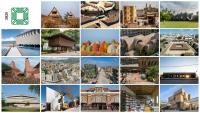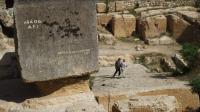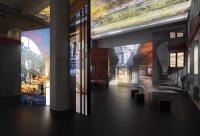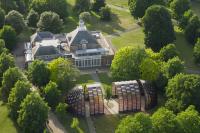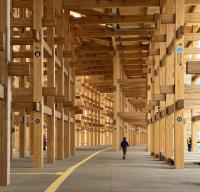Museum for Swiss Watchmaker Audemars Piguet
Le Brassus, スイス
Swiss luxury watchmaker Audemars Piguet chooses BIG to expand its historic headquarters. The 2.400m2/25,800sf pavilion will be a striking landmark to precision seamlessly integrated into the local landscape.
Team BIG, HG Merz, Luchinger & Meyer and Muller Illien's design is rooted in the origins of the family owned company, a history of watchmaking that goes back centuries and is nested in the nature and culture of the Vallée de Joux. Surrounded by the historical workshops in Le Brassus in the heart of La Vallée de Joux, the new museum called Maison des Fondateurs, will be imbedded in the landscape - reuniting the buildings with the undulating fields of the valley.
BIG created an intertwined spiral shaped pavilion which is conceived as a storyline for the visitors – blending old and new – and guiding the visitor through a linear sequence of spaces and events, from the entrance through lounges, galleries and workshops, to the attic of the heritage building in the workshop where it all began.
The intertwined spirals solve one of the dilemmas of the program. The narrative structure calls for a succession of galleries and workshops, while the logistics of operations requires the workshops to be interconnected. By coiling up the sequence of spaces in a double spiral, the three workshops find themselves in immediate adjacency – forming one continuous workspace – surrounded by galleries.
The roof and ceiling of the pavilion is conceived as a single sheet of metal – a steel structure clad in brass, continuous in plan but undulating in section to create a series of openings allowing daylight and views to the exhibits. Towards the end of the visit the double spiral intersects the existing museum building providing access to the vaulted spaces in the lower floor and to the attic. The dynamic forms of modern materials, concrete and brass, give way for a locally anchored tectonic of straight lines and warm surfaces of wood or stone. Heavy meets light. Soft meets hard. Warm meets cool.
- 場所
- Le Brassus, スイス
- 年
- 2014









